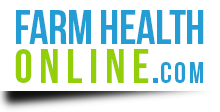Farm Health Online is a collaboration between Duchy College Rural Business School, Animal Welfare Approved and A Greener World.
Farm Health Online is a knowledge hub providing comprehensive information on sustainable approaches to enhancing the health and welfare of farmed livestock. We have achieved this by converting existing scientific knowledge into accessible and practical advice and information for farmers so as to aid the decision making process and to enable proactive animal health and welfare planning. The website contains information on many disease management and health and welfare issues for a range of species, as well as answering key contemporary veterinary questions.
Our core principles and practices can be viewed by clicking on the blue box at the top right of each page.
Farm Health Online would like to acknowledge the contributors and reviewers to the website which includes Anna Heaton, Dr Peter Plate MRCVS, Dr Wendy Weirich, Gibson David Shingleton MRCVS, Alex Thomsett MRCVS, Josephine Child MRCVS, and Dr Gian Lorenzo D’Alterio FRCVS, whose help and expertise has been instrumental to the development of this site.
We would welcome your feedback on the website, as well as any questions or suggestions you may have. You can email us here.


 American English
American English

Comments are closed.